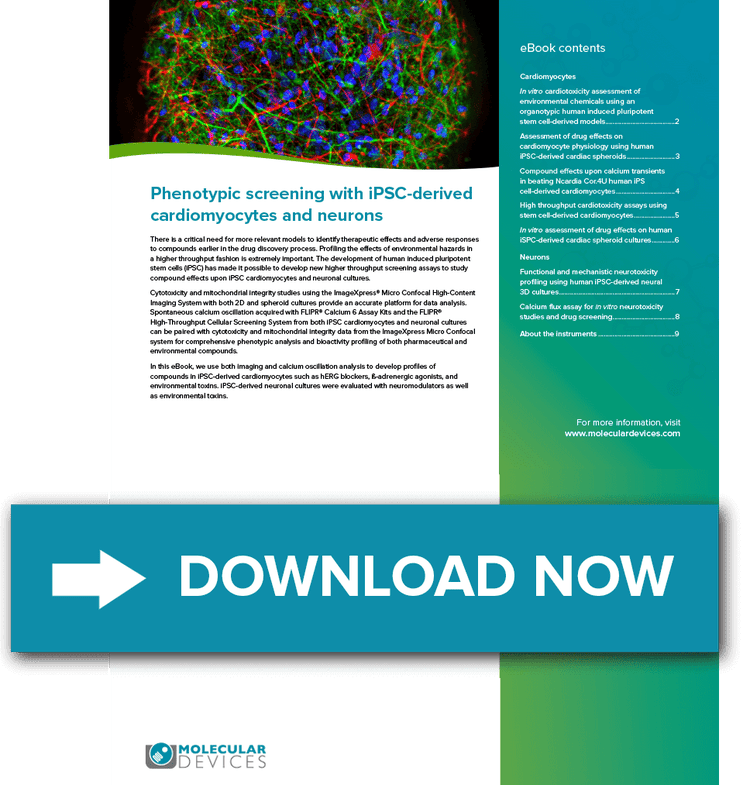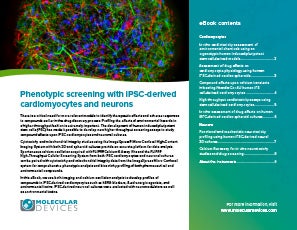
FREE EBOOK:
Phenotypic Screening With iPSC-Derived Cardiomyocytes and Neurons
Learn how to use both imaging and calcium oscillation analysis to develop profiles of compounds in iPSC-derived cardiomyocytes such as hERG blockers, ß-adrenergic agonists, and environmental toxins. iPSC-derived neuronal cultures were evaluated with neuromodulators as well as environmental toxins.

Identify therapeutic effects and adverse responses to compounds earlier in the drug discovery process
There is a critical need for more relevant models to identify therapeutic effects and adverse responses to compounds earlier in the drug discovery process. Profiling the effects of environmental hazards in a higher throughput fashion is extremely important. The development of human induced pluripotent stem cells (iPSC) has made it possible to develop new higher throughput screening assays to study compound effects upon iPSC cardiomyocytes and neuronal cultures.
Cytotoxicity and mitochondrial integrity studies using the ImageXpress® Micro Confocal High-Content Imaging System with both 2D and spheroid cultures provide an accurate platform for data analysis. Spontaneous calcium oscillation acquired with FLIPR® Calcium 6 Assay Kit and the FLIPR High-Throughput Cellular Screening System from both iPSC cardiomyocytes and neuronal cultures can be paired with cytotoxicity and mitochondrial integrity data from the ImageXpress Micro Confocal system for comprehensive phenotypic analysis and bioactivity profiling of both pharmaceutical and environmental compounds.
